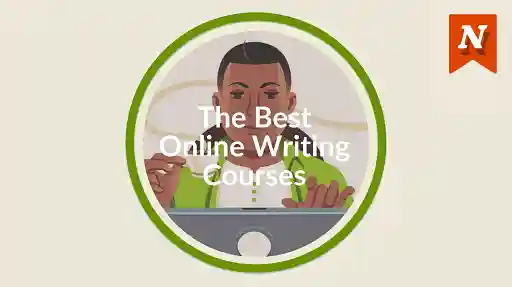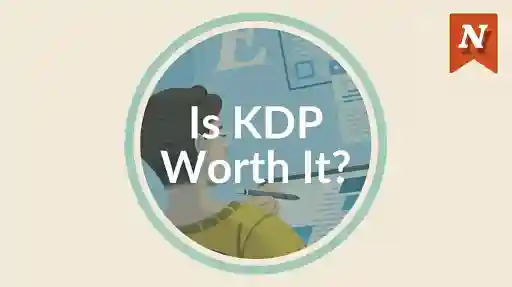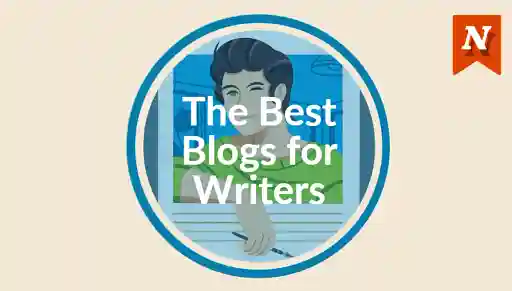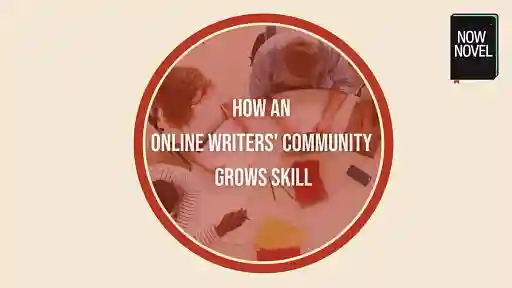The business of writing has as many moving parts as writing craft. This brief guide on how to create a business plan for writers will help you take steps to plan and adhere to SMART writing goals while keeping the business of writing (selling books and marketing your novels or non-fiction) firmly in mind.
What is a business plan for writers?
If you've ever watched a reality show about business investment such as the UK show Dragon's Den (aired as Shark Tank in the US), you'll know that start-ups that win big backing have one thing in common: a clear plan.
A classic business plan is:
- A comprehensive document stating future business objectives plus strategies for achieving them
- A guide to each stage of starting and/or managing a business over a future term used to record goals (and stay on track or rein in scope)
- A reference document to use towards measuring outcomes (for example, whether or not the goals in the plan were met, the strategies used, and how effective they were)
A good business plan goes hand in hand with other essentials: Knowing your niche, your value, and your target market. Make forming one an integral part of your story planning process.
Standard business plans vs business plans for writers
A business plan for writers differs from the type of plan a start-up would use to pitch investors:
- If you are an indie author (or hoping to become one), there will be less emphasis on proving your business case (its commercial viability). Your plan won't need to convince investors to part with their cash in exchange for specific forecast returns (ROI)
- Your plan will feature aspects that are highly specific to the business of writing (such as book cover design and costs, editing, and other professional writing overheads)
Let's explore 9 steps for building a business plan for a book or series:
9 steps to create a kickass writing plan for your business:
- Begin building your platform and audience.
- Brainstorm business-phase-specific writing goals.
- Prioritize goals by need, not wish.
- Create a living writing business plan.
- Itemize your planned expenses.
- Calculate what you need to sell to break even.
- Explore and choose strategies for selling.
- Create a compelling showcase for your brand.
- Measure results and adjust as you go.
Begin building your platform and audience
Why does building a platform/audience come first? Because it's never too early to start connecting with others who may value, enjoy, and be willing to pay to further enjoy your voice.
Ways to build your writing platform:
- Create an author site that will be home to your future publications. To keep costs down you can use an all-in-one website design and hosting service such as Wix. Keep in mind that using designers and developers provides even more customization potential and design/functionality freedom, but may cost more.
- Blog about topics relevant to potential readers in your target audience.
- Create author pages on social media for sharing writing snippets, promo and news.
- Build a newsletter for your author site and offer giveaways (such as short stories or guides).
- Host or co-host webinars or lives on social media with other writers.
These are just some ideas.
Indie publishing expert Joanna Penn raises an important platform-building caveat. If you are in the early stages of writing a book, the types of platform available to you (and what is most popular with netizens) may have changed a lot by the time your book is out. (TikTok, for example, now hugely popular, was only started in 2016.)
Penn's advice is to at least have a simple website with some form of email-gathering function. Email remains an effective way to spread the word about your newest and existing releases.

Brainstorm business-phase-specific writing goals
The first, proper step of creating a business plan for writers is to brainstorm goals specific to the phase of writing you're in.
For example, if you're working on your debut novel and are not yet published (traditionally or independently), your goals will likely look substantially different to a so-called 'Midlist Author' (an author who publishes consistently profitable books, but is not yet a publishing sensation landing seven-figure deals).
For midlist to top-tier authors, goals often focus on expansion oriented tasks such as speaking engagements or tapping new audiences by branching out into other genres or subgenres (for example, the way She-Who-Must-Not-Be-Named moved into writing thrillers as Robert Galbraith after her fantasy success).
Now Novel writing coach Romy Sommer discusses tailoring strategy to your professional phase in our writing webinar on building a writing career.
Examples of goals specific to the current phase of your professional writing life might be:
- Finding and hiring a fiction editor for a recently completed draft
- Shortlisting agents open for queries who are interested in your genre and/or subject matter niche
- Creating a website that will provide a showcase and selling tool for your future publications
Prioritize goals by need, not wish
Once you've brainstormed a list of specific goals that may be relevant to your writing business plan, it's time to finesse these down to the most important, SMART goals.
SMART goals are goals that are specific, measurable, attainable, realistic, and time-based.
Prioritize goals by their relevance to tangible objectives. For example, formatting your book for X platform by Y date.
These are more practical than 'nice to haves' that have hard-to-predict impact on finances. For example, 'becoming a bestseller' - a 'bestseller' after all may mean radically different sales numbers in different countries or genres.
Examples of SMART business plan goals for writers
'Research and write a list of ten agents currently open to queries in my genre/subject matter and start querying next Monday' is a SMART goal.
It's relevant to a specific business phase (having a manuscript to publish, in this example, traditionally). It's attainable, actionable, and time-based.
'Become a bestselling author' is not (there are too many variables and moving parts; it lacks specificity). This is not to say that big dreams are invalid or not worth holding! But... they're the driving, desiring force behind a good business plan, not the main content.
What do you need to do most urgently to get to a point where you have books to sell to an audience that's dying to read them?
Angela Ackerman, in a helpful article for Jane Friedman's publishing blog on the first steps in creating a writing business plans, says:
Sometimes desire (wanting to be published right now, for example) can get in the way of what we actually need (to hone our craft further). To be objective, set emotion aside. Ask yourself hard questions about what your career really needs.
Angela Ackerman, in 'The 7-Step Business Plan for Writers', via Jane Friedman's blog.

Create a living writing business plan
So you've prioritized goals for the next six months to a year ahead. You've made sure they're SMART and tailored to where you're at now.
The next step is to create a living business plan for your writing.
Why a 'living' plan? There are times in any strategic process such as selling your work where you may want to reflect on how things are going, what's working, and what isn't, and regroup.
Begin your plan with a mission statement. Try to keep this to a sentence or two at most. For example:
'Hire a cover designer, editors and formatting professional for my urban fantasy debut, create author profiles on Goodreads, Amazon and Wattpad, and self-publish my book by next June.'
Create a checklist of action items or 'jobs to be done' for your plan, prioritized by urgency. The satisfaction of ticking off checklist items is great motivation.
Itemize your planned expenses
Whether you want to sell enough books in a year's trade to quit your day job or just see how many copies you can sell if you are systematic, it's important to tracks costs vs returns.
For example, for a typical 80,000 word genre fiction debut, you might create a table in your business plan that looks something like this:
| Service | Cost | Paid/Received [dates] |
| Cover design | $750* | |
| Copy-editing | $1360 | |
| Formatting for ePub | Free* | |
| Promo (e.g. paid social promotion) | $150 | |
| Website hosting and design | TBC |
Cover design and editing are essential if you want your book to stand out, and to do the utmost to win over first-time readers.
As in the table above, you may have expenses such as website hosting and design requiring further research, because there are just so many options. The same goes for turning your manuscript into an audiobook.
The promo spend of $150 above is based on the minimum daily spend for Instagram ads being $5 (assuming, for this example, that you wanted to pay to promote your indie book to a niche reader audience matching your genre on Instagram for 30 days).
The above example of costs is a rough example, of course. You may well find cover designers whose services cost less than a lower- mid-priced professional who has more experience. Ditto for editing (remember the caveat though: 'You get what you pay for').
Having a good estimate of costs for your business plan (and replacing these with hard figures as quotes come in and you choose which to accept) will help you budget and work out what you need to sell to break even:
Calculate what you need to sell to break even
Going off the above table (which does only include copy-editing, and not a manuscript evaluation, developmental editing or proofreading, and leaves out other costs such as print copies), you would need to sell 2182 digital copies of your book at a promo price of $0.99 to earn back your (known) expenses, or 1086 copies at a launch/promo price of $1.99 per copy ($2160 of known expenses divided by your selling price and rounded up).
Having this figure is vital as it gives you an exact target for sales, as well as an idea of the sweet spot for promo pricing to at least recoup your expenses in the first push.
Will you sell your book cheaply to start for the sake of a lower barrier to entry for potential readers with whom you have not yet proven your entertainment value?
This is a particularly helpful strategy for selling a new series, as you can up your pricing for sequels.
As part of working out selling price and launch strategies, read publishing experts' blogs and thoughts on the matter. Joanna Penn has a helpful article on the benefits of selling with platform exclusivity versus 'going wide' (selling on multiple platforms), for example.

Explore and choose strategies for selling
There are many platforms, models and strategies for selling your stories.
Long gone are the days of book chains, indie stores and physical libraries being the main way to find your favorite stories.
The mix of in-store and digital gives you many ways to promote your writing and find an audience that may be hungry for the exact themes, topics, and experiences your work explores.
Some selling strategies to explore and choose from to add to your growing business plan include:
- Platform-specific promo services (such as KDP Select, Amazon's promotional program for authors willing to sign over exclusive publishing rights to their platform for 90 days)
- Book blog tours and giveaways (partnering with writing sites that have blogs to talk about your book - for example, we interview members who have new releases to share here on Now Novel)
If your marketing knowledge and experience is scant, it may be worth taking a book marketing course (remember to add this to the expenses portion of your writing business plan).
Coursera is a fantastic resource for university-run short learning courses, and may help you grasp marketing fundamentals or how to use tools for understanding how to convert website visitors into customers/readers.
Create a compelling showcase for your brand
Many artists and writers are allergic to marketing terms such as 'brand'. They tend to sound clinical, the kind of buzzwords that people throw out a mile a minute at conferences.
Yet branding is a helpful concept to think about as you create your writing business plan.
What is an author's brand?
If you look at a major brand such as Nike's advertising, a specific 'brand persona' becomes clear. Nike is all about the 'mentor/coach' archetype (from their slogan 'Just Do It' to their visual choices such as the tick-like swoosh logo), their brand is all about helping the customer reach their own potential.
An author brand differs in several ways (authors don't have catchphrases or slogans, of course). Yet having a clear author brand can (like Nike) differentiate what is unique and wonderful about your work in a crowded bookshelf or marketplace. From cover design choices to titling, how you represent your work infers a certain tone and persona.
In the podcast with Joanna Penn mentioned above, Penn shares that she's interested in the spooky and how she shares pictures of eerie environs because she knows these appeal to a certain type of reader who would fall within her target audience - that's a branding decision.
Ways to build showcasing your brand into your writing business plan
- Plan the language and tone of your newsletter and social media posts. If you write cozy mysteries, for example, what cozy language or mystery can you carry over into what you share?
- Plan how you'll incorporate the emotion your writing intends to stir in readers into your visual design language, on your author site and social media. If you write bloodcurdling, violent fantasy, what color, typographical and other design choices will communicate what your writing is all about?
- Think about what types of promotions you could run that are on-brand. An author who writes 'choose-your-own-adventure' books like Goosebumps titles in this format could run a book giveaway contest where readers combine given elements to create their own flash fiction, for example, for a book giveaway.
- Create a calendar of images, quotes and videos to share that match the tone, mood, spirit and/or subjects of your stories.
Measure results and adjust as you go
In any business, it helps to be agile, able to pivot fast to let go of strategies not working or embrace newer methods or platforms that are well-aligned to your goals.
Make your business plan a living document that you review regularly and adjust as needed so that you factor in assessing, learning what worked and what didn't, and coming back stronger.
Looking for professional fiction editing services or a writing coach to guide you through each stage of writing and querying? Now Novel offers companionship and a supportive network, every step of the way.
Further resources
Rick Lite has a helpful guide for IngramSpark for creating a book promo timeline.
Zara Altair at ProWritingAid provides helpful questions to ask in deciding your book's value and price.
Are you making regular earnings on your books? What's the one tip you'd give another writer on going pro? Let us know down below.










Extremely helpful! Thank you, Jordan.
Allorianna - About 4 years ago
Hi Allorianna, thank you! I'm glad you found this helpful. See you in the next webinar :)
Jordan - About 4 years ago
Jordan! Thanks a million! What a detailed and helpful post! I've bookmarked this!
Michi - About 4 years ago
Hi Michi, it's a pleasure. Thanks for reading this and for sharing your feedback :)
Jordan - About 4 years ago
Excellent follow-up to the webinar! Great tips. I will be printing out the 9 Steps graphic. Thanks for all your expertise.
Billy - About 4 years ago
Hi Billy, thank you for sharing your feedback - I'm glad you found this a helpful supplement to the webinar. It's a pleasure, happy writing!
Jordan - About 4 years ago
Thanks a lot for your work. Great article. Everything is very clear and understandable.
Work Time - Over 3 years ago
excellent writing and every thing is understandable
Asif Virani - Over 2 years ago
Dear Asif, I'm so pleased you found this useful! Thanks for writing in. All the best with your writing.
Arja Salafranca - Over 2 years ago